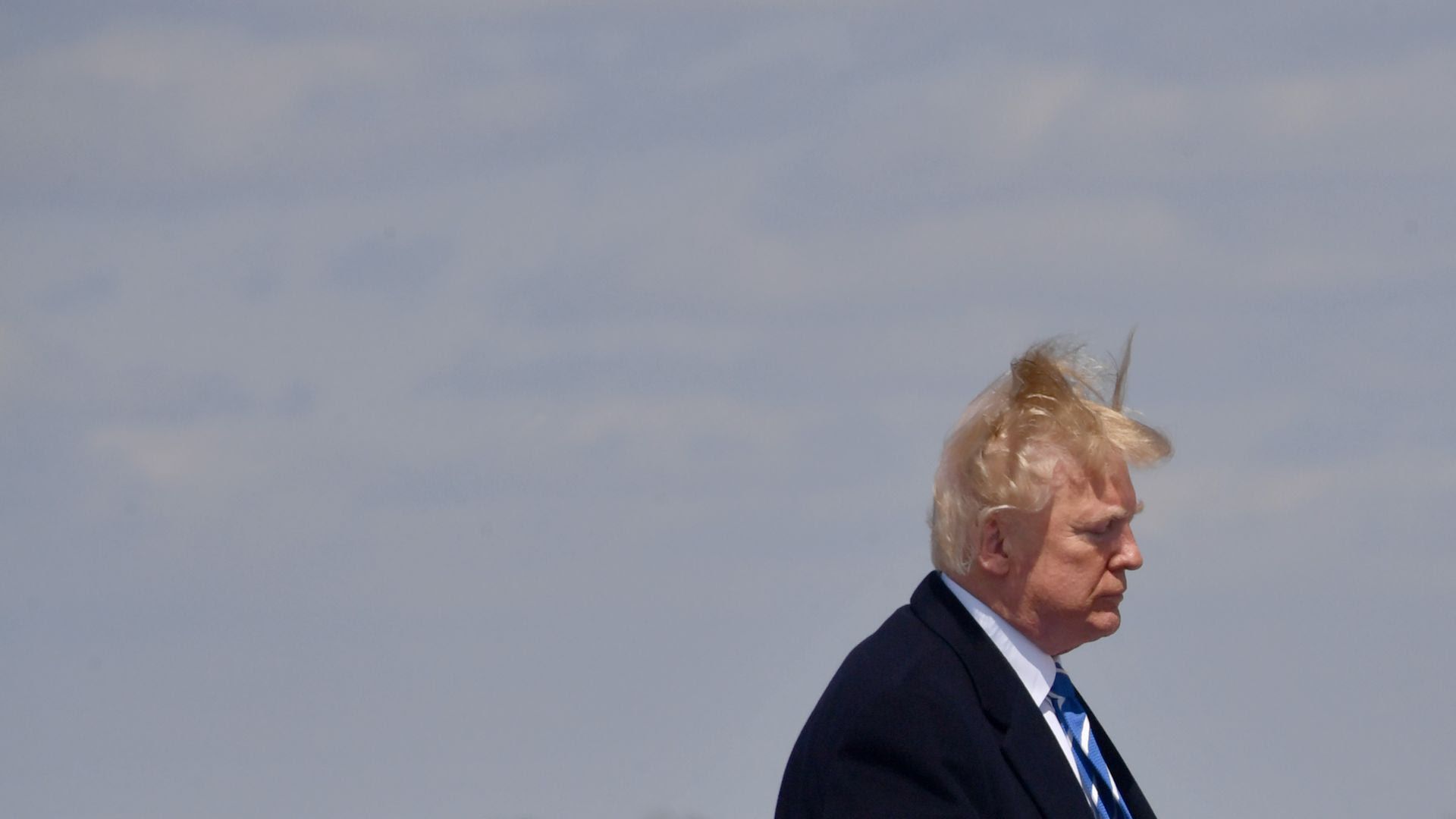How Trump governs by bluffing
Add Axios as your preferred source to
see more of our stories on Google.

President Trump boards Air Force One on a windy day at Andrews Air Force Base yesterday. (Nicholas Kamm / AFP / Getty Images)
With his announcement yesterday that he's considering $100 billion more tariffs on Chinese goods, President Trump created confusion within his administration and abroad because of a negotiating style you could call "governing by bluffing."
This is how he has lived his whole life: promising big things, and creating on-the-edge, "Apprentice"-style drama — then changing his mind.
- He threatened to veto a spending bill that conservatives hate, then signed it.
- He announced stiff tariffs on imports of steel and aluminum, then the administration started negotiating tons of carve-outs.
- He talks of war with North Korea, then agrees to meet with Kim Jong-un.
- He muses openly of replacing top aides, including White House Chief of Staff John Kelly, then lets them stay.
How Trump views negotiating, based on conversations by Jonathan Swan and me:
- Unlike most politicians, he sees the “announcement” not as the rollout of a policy, but as the starting point for negotiations.
- The word Trump uses all the time privately, and sometimes publicly, is “flexible.” Everything is up for negotiation. Everything is zero sum.
- And he always needs a scorecard, to know minute-by-minute who is “winning.” With foreign countries like China, his scorecard is the trade deficit.
So the bluff is really just his extreme, gambler’s negotiating style: Make a maximalist ask, frame the debate around that, and go from there, improvising all the way.
- It worked sometimes in his business career but it also failed a bunch, most spectacularly in Atlantic City when his casinos went bust and he temporarily gave his life over to his creditors.
- It’s too early in his presidency to tell definitively whether his negotiating tactics will work in international relations.
- As Eurasia Group's Ian Bremmer points out, Trump has already gotten some concessions out of the Chinese and South Koreans, so the approach hasn't been a total failure.
A source close to Trump tells us: "Being a 'bluffer' only works when you have a history of actually following through. Trump has followed through on his threats enough that it's impossible to determine what he's really thinking."
Be smart: Trump is right that his wild unpredictability gives him leverage and keeps people guessing. But his style stirs wild uncertainty and market volatility daily.

